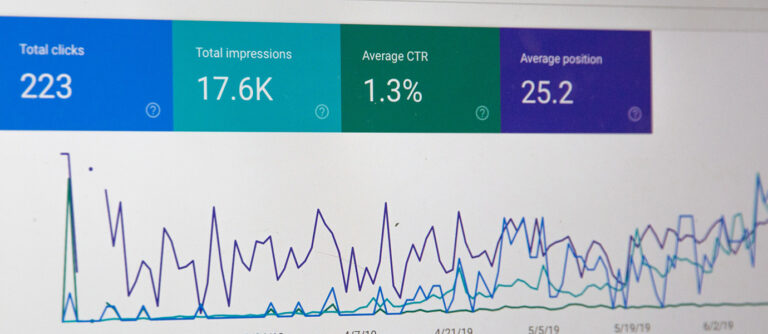HVAC Keyword Research: Unlocking the Secrets to Success

Keyword research is an essential part of any successful digital marketing strategy, especially in the HVAC industry. HVAC businesses must effectively use keyword research to improve their online visibility, drive organic traffic, and ultimately generate more leads. In this article, we’ll walk you through the process of HVAC keyword research, discussing the importance of effective keyword selection and providing practical tips for unlocking the secrets to success.
The Importance of HVAC Keyword Research
In the highly competitive HVAC industry, businesses must have a strong online presence to attract potential customers. Keyword research helps you understand what potential customers are searching for, allowing you to create content that addresses their needs and ranks highly on search engines. By optimizing your website with the right keywords, you can drive more organic traffic, increase brand awareness, and ultimately boost sales.
Getting Started with Keyword Research
To begin your HVAC keyword research, follow these steps:
Brainstorming Keywords
Start by brainstorming a list of potential keywords related to your HVAC business. Consider the services you offer, the problems you solve, and the types of customers you serve. Think about common HVAC-related terms and phrases, such as “air conditioning repair,” “furnace installation,” and “energy-efficient HVAC systems.”
Using Keyword Research Tools
Once you’ve generated a list of potential keywords, use keyword research tools to gather data on search volume, competition, and more. Some popular tools include Google Keyword Planner, SEMrush, and Ahrefs. These tools will help you identify the most valuable keywords to target in your content.
Analyzing Your Keywords
With a list of potential keywords and data from your research tools, it’s time to analyze your findings. Consider the following factors when evaluating keywords:
Search Volume
Search volume refers to the number of searches a specific keyword receives per month. Targeting keywords with high search volume can help you attract more organic traffic, but these keywords often have higher competition.
Competition
Competition refers to the number of websites ranking for a specific keyword. Highly competitive keywords can be difficult to rank for, especially for smaller businesses or newer websites. Look for keywords with moderate competition to improve your chances of ranking highly on search engines.
Keyword Difficulty
Keyword difficulty is a metric used by keyword research tools to estimate how difficult it is to rank for a specific keyword. Choose keywords with lower difficulty scores to increase your chances of ranking on the first page of search results.
Long-Tail Keywords
Long-tail keywords are longer, more specific phrases that often have lower search volume but less competition. These keywords can be valuable for your HVAC business because they target niche audiences and have higher conversion rates. Examples of long-tail keywords include “emergency air conditioner repair near me” or “best energy-efficient heating systems for cold climates.”
Local SEO Keywords
Local SEO is crucial for HVAC businesses, as most customers search for services within their geographic area. Incorporate local keywords into your research, such as city names, neighborhoods, and landmarks. For example, “HVAC repair in [city name]” or “heating and cooling services near [landmark].”
Seasonal Keywords
The HVAC industry is often seasonal, with increased demand for specific services depending on the time of year. Consider incorporating seasonal keywords into your content, such as “summer AC tune-up” or “winter furnace maintenance.”
User Intent and Keyword Relevance
Understanding user intent is essential when selecting keywords. Ensure the keywords you target align with the content on your website and address the needs of potential customers. For example, a user searching for “HVAC maintenance tips” likely wants informational content, while someone searching for “HVAC repair near me” is looking for a service provider.
Optimizing Your Content
Once you’ve identified the right keywords, it’s time to optimize your content for SEO:
On-Page SEO
On-page SEO involves optimizing your website’s content, title tags, meta descriptions, and headers for your target keywords. Include your primary keyword in the title tag, headers, and throughout the content, but avoid keyword stuffing. Instead, use synonyms and related terms to create a natural flow.
Off-Page SEO
Off-page SEO refers to external factors that impact your website’s ranking, such as backlinks, social signals, and online reviews. Build relationships with other HVAC businesses, industry websites, and local directories to generate high-quality backlinks to your site. Encourage satisfied customers to leave reviews on platforms like Google My Business and Yelp.
Tracking Your Success
Monitor the performance of your keyword-optimized content using tools like Google Analytics, Google Search Console, and SEMrush. Track metrics like organic traffic, search engine rankings, and conversion rates to determine the effectiveness of your keyword strategy and make adjustments as needed.
Conclusion
HVAC keyword research is crucial for driving organic traffic and generating leads for your business. By understanding the importance of keyword research, utilizing the right tools, and optimizing your content, you can unlock the secrets to success in the competitive HVAC industry.
FAQs
What is keyword research?
Keyword research is the process of identifying and analyzing the words and phrases that potential customers use when searching for HVAC services online.
Why is keyword research important for HVAC businesses?
Keyword research helps HVAC businesses create content that addresses the needs of potential customers, improve their online visibility, and ultimately generate more leads.
What are long-tail keywords?
Long-tail keywords are longer, more specific phrases that target niche audiences and have lower search volume but less competition.
What is the difference between on-page and off-page SEO?
On-page SEO involves optimizing your website’s content, title tags, meta descriptions, and headers for your target keywords, while off-page SEO refers to external factors like backlinks, social signals, and online reviews.
How can I track the success of my keyword strategy?
Use tools like Google Analytics, Google Search Console, and SEMrush to monitor metrics such as organic traffic, search engine rankings, and conversion rates.




